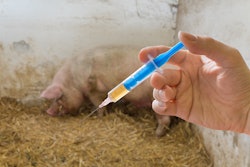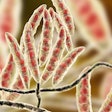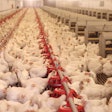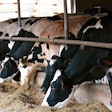
Over the past 10 days, at least 11 countries in Europe have registered new outbreaks of African swine fever (ASF) in domestic pigs. Kosovo is the latest to confirm the presence of the virus at a farm. Meanwhile, further cases are confirmed in wild boar populations across central and eastern Europe, including the first case in Croatia.
In parts of Europe, the ASF virus continues to cause morbidity and mortality in backyard herds. While these have been recorded widely across the continent, the latest outbreaks have been confined to non-commercial herds. Countries in the Balkans in the southeast of the continent have lately been reporting high numbers of new outbreaks.
Just half-way through the year, and it appears that 2023 may see a reverse in the downwards trend in outbreak numbers in both wild and domestic pigs observed last year. Furthermore, the virus is spreading to nations never previously impacted by ASF.
ASF outbreaks approach 450 for the year
So far in 2023, the total number of confirmed ASF outbreaks on farms and in backyard herds at 445. Covering EU member states and immediate neighbors, this is according to the Animal Disease Information System of the European Commission (EC; as of July 8).
Compared with the previous update on June 30, this represents another steep rise of 108 in overall outbreaks. However, at 13, the number of states registering cases through this system in 2023 remains unchanged.
For comparison, 12 European states registered a total of 537 outbreaks in this population with the EC in the whole of 2022. Of these, 329 occurred in Romania.
It appears that ASF is both widening and deepening its grip on Europe’s domestic swine compared with last year.
In 2023, the highest number of outbreaks in this category have occurred in Serbia, with a total of 200 (as of July 8). This is an increase of 36 since the previous update. Next comes Romania (now with 146). Since registering their first cases just last month, outbreak totals for Croatia and Bosnia & Herzegovina have already reached 31 and 23, respectively.
Moldova’s score reached 15 by March but no further cases have been confirmed since then. For each of the other eight European states covered by the EC’s System, just 10 or fewer outbreaks have been confirmed through the EC’s system.
First ASF outbreak recorded in Kosovo
For the first time, ASF virus has been detected in the Republic of Kosovo.
Affected was a farm in the southeast of the country, reports Kosova Press. Numbers of pigs affected at the premises in Klokot municipality in the district of Gjilan are not reported. As the report refers to female animals, the infection might be on a breeding farm.
All pigs at the facility are being destroyed, and the area cleaned and disinfected under veterinary supervision.
Health of pigs at farms within a 3-kilometer radius are being monitored. Meanwhile, Kosovo’s farmers and vets are being urged by officials to be vigilant for signs of ill-health in swine, and to maintain high biosecurity standards.
ASF developments in European herds
More detail on outbreaks is provided in official reports from the national veterinary authorities to the World Organisation for Animal Health (WOAH).
Over the past 10 days, a further 66 outbreaks have been notified by this agency in Romania.
All were in backyard herds, each with no more than 45 animals. Many of the outbreaks occurred in a tight cluster in two villages in the southeastern county of Ialomita.
Since registering its first cases of ASF on June 23, Croatia’s outbreak total in domestic pigs had reached 40 by July 5, based on WOAH notifications.
Each involving between two and 52 pigs, the most recently reported 29 outbreaks directly impacted a total of 663 pigs. As well as further infections in the northeastern county of Vukovar-Srijem, first cases have been detected in neighboring Brod-Posavina.
Both of these Croatian counties border Bosnia & Herzegovina, where 22 further outbreaks have been confirmed to WOAH. Affected were a total of 415 pigs in the northeastern district of Brcko.
A fifth ASF outbreak has been recorded in the south Italian region of Calabria. While the premises is in a different town from the previous ones, all have been in the same province, Reggio di Calabria. Involving just 12 pigs, this latest outbreak brings the regional total so far to 558 animals directly impacted.
Following a hiatus of more than 15 months, ASF has been detected again in Ukraine’s Kiev region. According to the WOAH notification, the only backyard pig died, and tested positive for the virus.
Poland’s total outbreaks in farmed pigs so far this year has reached 14. Latest outbreaks involved two herds in the eastern province of Lublin, reports the chief veterinary office. With one comprising 166 animals, and one of eight pigs, total numbers affected since April stand at 5,116.
The disease situation in Russia is not covered by the EC’s system. However, the veterinary authority has notified WOAH about three recent outbreaks confirmed in the Central federal district.
Each with between three and 30 pigs, all affected premises were described as “backyards.” Two were in the Tver region, and one in Vladimir.
Another outbreak has occurred at a farm in Kllokot, Kosovo, reported Voxnews. While the case has not yet been reported to the WOAH, the news outlet reported that the case had been confirmed by the country's Food and Veterinary Agency. It is the first cases to be reported in Kosovo.
ASF outbreaks in European wild boar reaches 5,200
Already this year, the total number of ASF outbreaks across Europe has reached 5,200, according to EC’s information system (up to July 8). This the latest total from 16 countries registering one or more outbreaks through this system since January 1.
Since the EC’s previous update dated June 30, 11 states have reported new cases in this population. This includes the first outbreak of this year in Croatia.
Registering the highest number of outbreaks in this category so far this year is Poland with a total of 1,936. Following are Germany (now with 736), Italy (709), Slovakia (478), and Hungary (318).
In addition to these six nations, also reporting new ASF outbreaks to the EC System since the previous update were Latvia, Lithuania, North Macedonia, Romania, and Serbia.
For comparison, there were a total of 7,442 outbreaks of ASF in wild boar across 15 European countries covered by the EC System in the whole of 2022.
Based on WOAH notifications, two more wild boar tested positive for the ASF virus in the Campania region in the south of Italy, and a total of seven in Liguria and Piedmont in the northwest of the country.
In Germany, ASF virus was first detected in September of 2020. Since then, virus-positive cases in the country’s wild boar have reached 5,457, according to the national veterinary agency. the Friedrich-Loeffler Institute (as of July 14). This figure includes 62 cases confirmed over the previous 28 days. Since the start of this month, all the country’s new cases have been located in one district in each of the eastern states of Brandenburg and Saxony.
Meanwhile, Russia’s veterinary authority has confirmed to WOAH that three wild boar have recently tested positive for the ASF virus.
Two of these animals were found in the Volga federal district — in the Chuvash Republic and Nizhny Novgorod — and one in Ivanovo in the Central district.
View our continuing coverage of the global African swine fever situation.














